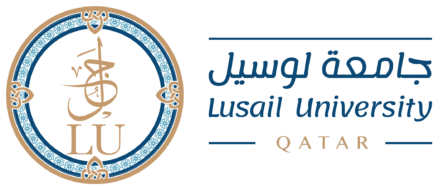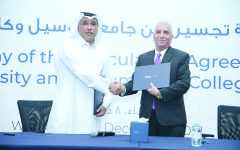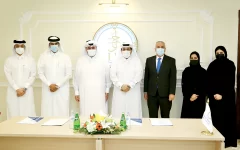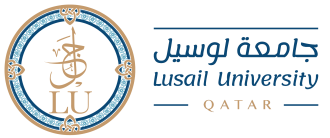Lusail University establishes Huawei ICT Academy to develop Qatari talent
September 19, 2021 2021-10-12 15:53Lusail University establishes Huawei ICT Academy to develop Qatari talent
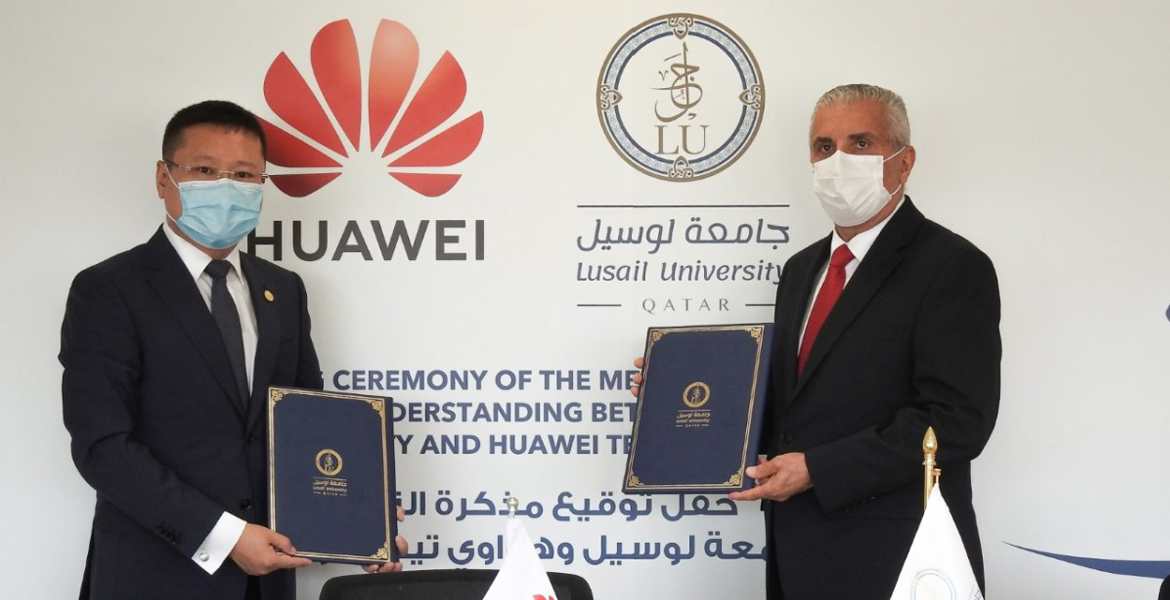
Lusail University establishes Huawei ICT Academy to develop Qatari talent
Lusail University has signed a Memorandum of Understanding with Huawei, a global leader in providing information and communication technology (ICT) infrastructure and smart devices, to establish the Huawei ICT Academy within the Lusail University campus, with the aim of enhancing the digital skills of university students in support of Qatar National Vision 2030. This cooperation will contribute In developing the burgeoning technology ecosystem in Qatar, and the wider Middle East region.
The MoU was signed by Prof. Nizam Hindi, Vice Rector of Lusail University, and Zhao Liang, CEO of Huawei in the North Gulf Region, in the presence of Vice Presidents and Deans of Colleges from Lusail University and other representatives from Huawei.
The Huawei ICT Academy, launched in 2013, contributes to nurturing talent, developing its capabilities, meeting technical requirements, and providing a qualified workforce necessary to develop the technical sector. As a world leader in providing technology solutions, Huawei aims to build an open and shared ecosystem of tech talent that brings benefits to all. Through this initiative, Huawei provides education, certificates, and job opportunities to students – by strengthening cooperation between universities and institutions for the development of the technical sector and creating talent development programs to meet the requirements of institutions that will ultimately promote the development of the digital economy along with supporting transformation schemes digital countries.
It is worth noting that so far, several Huawei IT academies have been established across the Middle East, Asia, Africa, Europe, the Americas and the South Pacific.
Training 10,000 students in the next 3 years
The new Huawei ICT Academy is one of several long-term partnerships between Huawei and Qatari institutions to nurture advanced digital skills among the country’s youth. Through such cooperation in the field of knowledge sharing, the company aims to train 10,000 students in Qatar over the next 3 years.
Lusail University Vice Rector, Prof. Nizam Hindi, said, “We are pleased to sign this agreement with Huawei, a leading technology company. We look forward to a long-term, mutually beneficial agreement that will allow Lusail University to provide high-quality education to university graduate professionals so that they are on With the help of our strategic partners, Lusail University is determined to become a leader in providing high quality education based on leadership and innovation.
Currently, Lusail University and its strategic partners offer a number of distinguished academic programs. The College of Commerce and Business offers a Bachelor’s Program in Business Administration in partnership with the University of Jordan, a Bachelor’s Program in Marketing and Distribution Techniques in partnership with Hassan II University in the Kingdom of Morocco, and a Bachelor’s Program in Logistics Resources Management from the University of Shippensburg, USA. The University’s Faculty of Law also offers two Bachelor’s programs in both public and private law in partnership with Hassan II University. The College of Education and Arts offers a program for teaching English and French studies. It should be noted that the teaching languages of the university are Arabic, English and French.
Zhao Liang, CEO of Huawei in the North Gulf Region, noted that Qatar continues to take great strides in attracting investments and nurturing a diversified and technologically advanced economy. By collaborating with local partners such as Lusail University, promoting local talent development, and committing to supporting mega projects, Huawei aims to contribute to the digitization efforts that Qatar National Vision 2030 aspires to.”
New technologies have already revolutionized the traditional industry sectors in Qatar and abroad. According to Gartner forecasts, IT spending in the Middle East and North Africa (MENA) region is expected to reach $171 billion in 2021, an increase of 4.5% over 2020.
